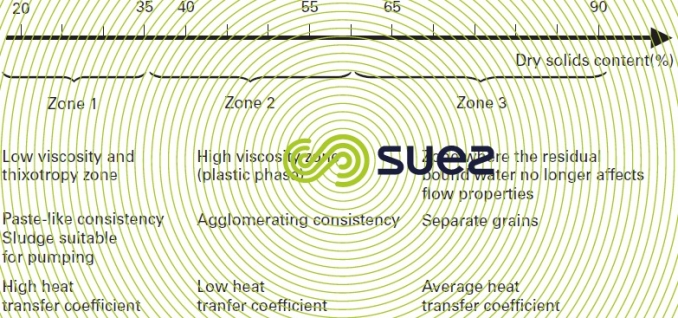sludge behaviour as it dries
Reading time:Organic sludge has a specific behaviour that has a considerable effect on thermal drying processes. This behaviour primarily depends on the dry solids content obtained (figure 4).
The dry solids content range for zone 2 is not easy to define because it is mainly caused by the fact that the sludge may or may not be biological and also by other properties such as fiber content; in general, it revolves around an average dry contents level of between 45 and 50 %. In this zone, sludge viscosity increases noticeably and endows it with self-agglomerating properties that makes the sludge unsuitable for pumping and, in general, difficult to handle.
In zone 3, sludge granules separate and vary in size according to sludge properties and to the dryer’s technology.



Bookmark tool
Click on the bookmark tool, highlight the last read paragraph to continue your reading later












